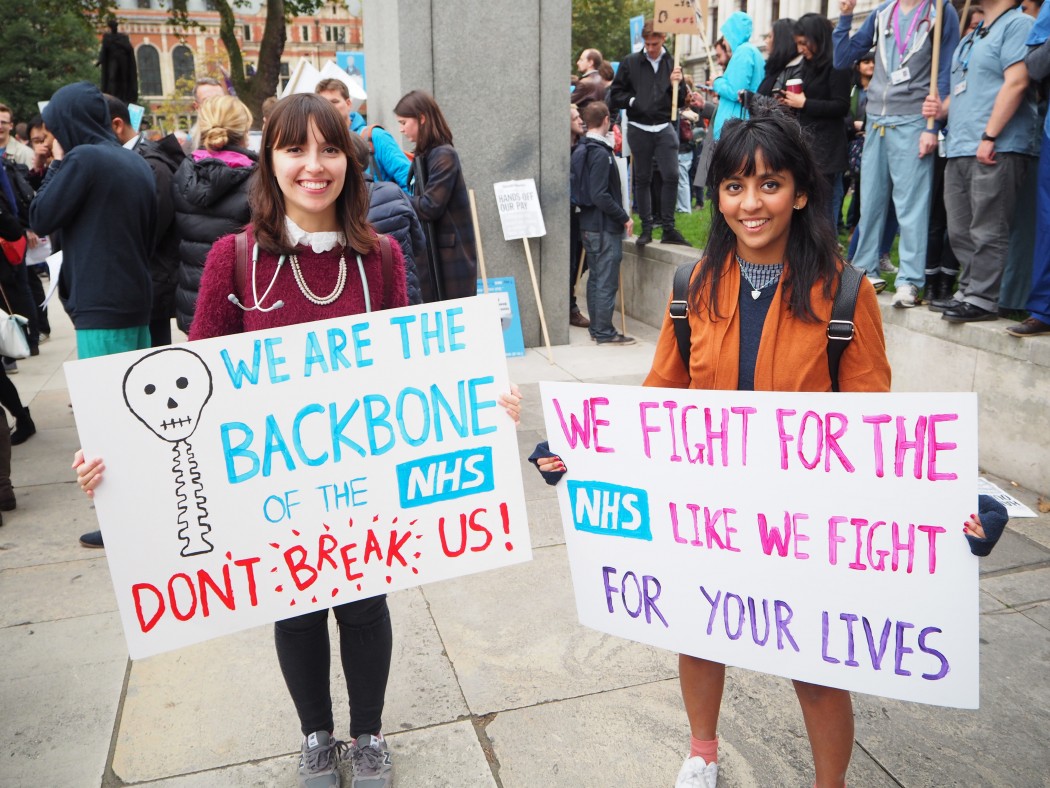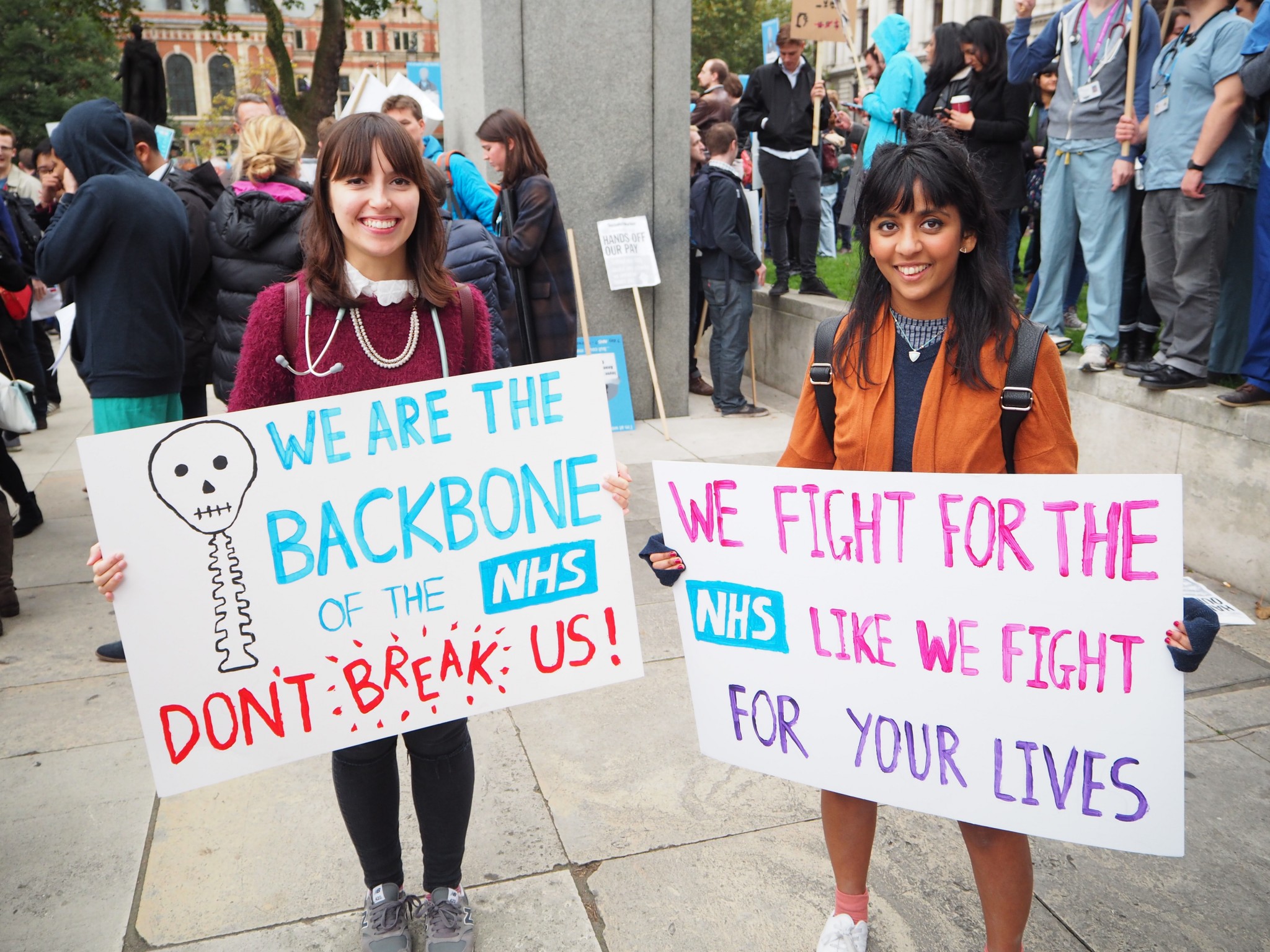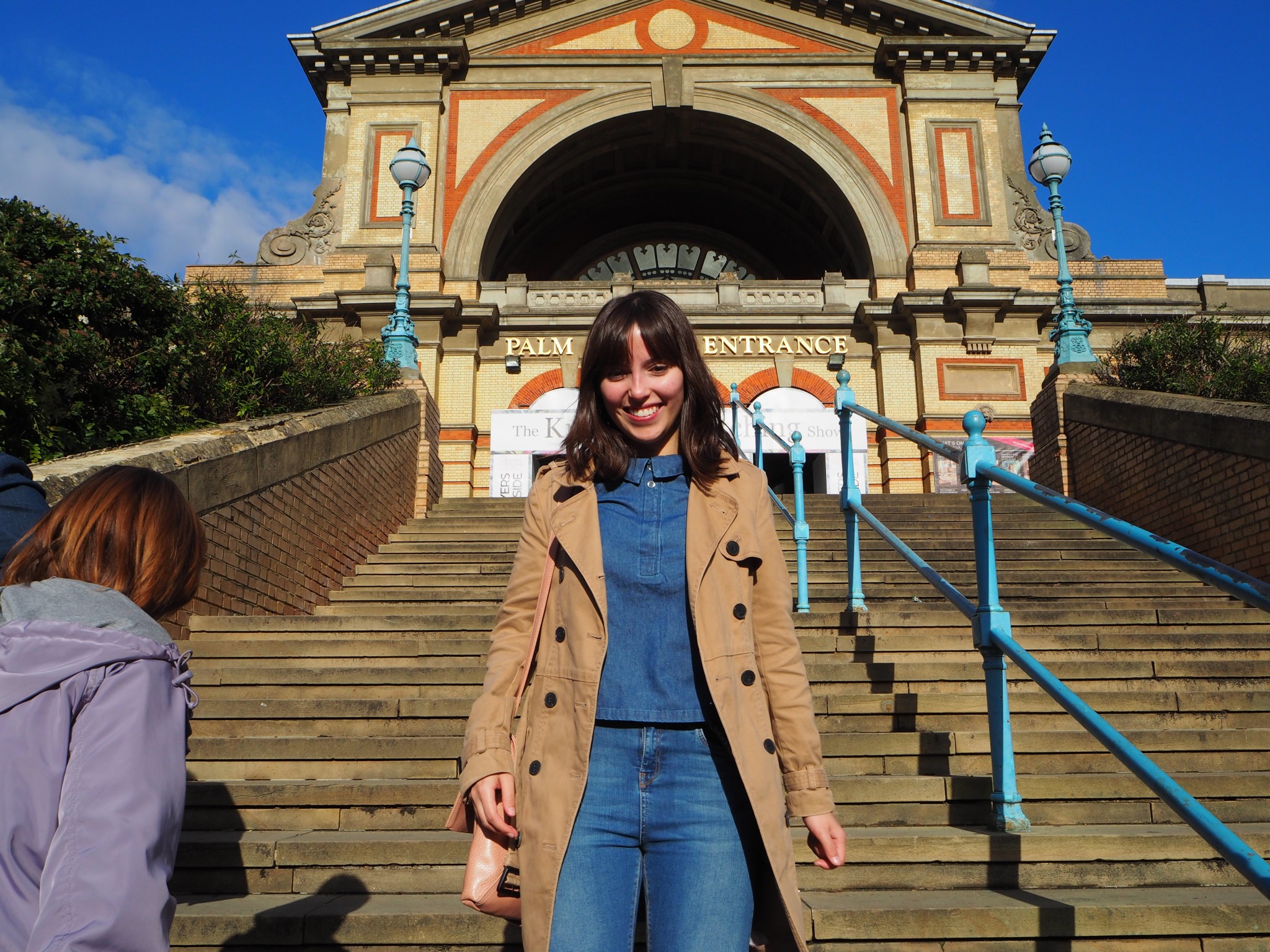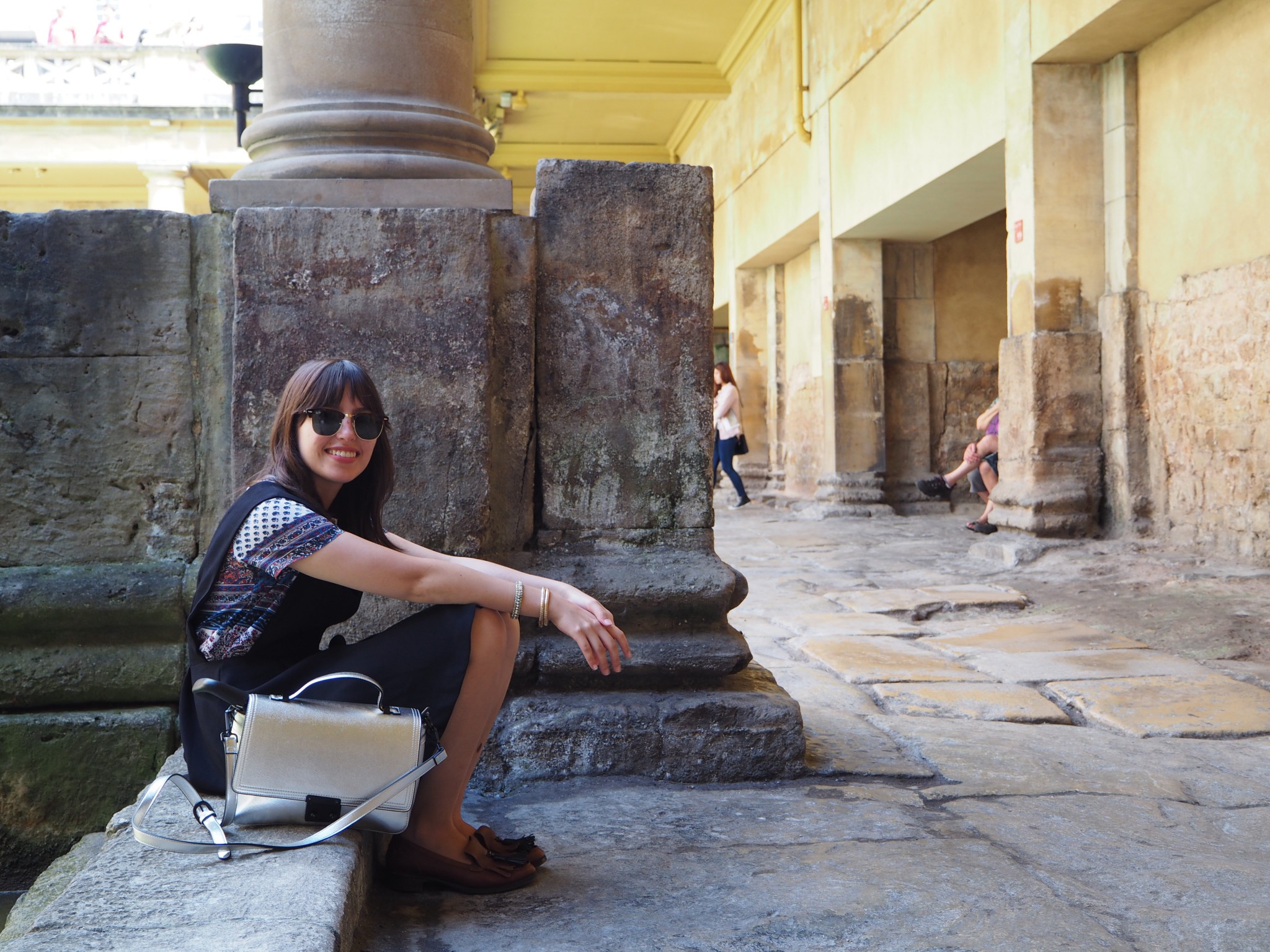It’s time for a rather exciting Career Inspiration interview. The aim of Career Inspiration is to help those of you looking for career ideas, a career change or simply an insight into what others do.
It’s very hard to know what you want to do in life and I’ve always enjoyed finding out about what others do and the journey they took to get there. So, I hope you enjoy today’s interview with Saskia, a Paediatrics Doctor in London.
What did you study at university?
I studied MBBS (Bachelor of Medicine, Bachelor of Surgery) for 5 years at university, but I also decided to do an intercalated BSc in Psychology during this time. The MBBS programme is split into non-clinical years (lectures and workshops as a foundation in science for medicine) and clinical years (placements in hospital) – I far more enjoyed the clinical years than non-clinical.
Please tell us more about the main training route to become a paediatrician?
After you graduate, you spend two years as a foundation doctor; this involves practising in 5-6 different areas of medicine usually across two different hospital sites. Afterwards, if you decide to specialise in Paediatrics, you apply for a training post through the Royal College of Paediatrics and Child Health. For this, I had to develop an in-depth written portfolio of my experiences and went through a series of interview stations to assess if I had the required knowledge, communication and personal skills for Paediatrics. This is the main training route available if you want to gain a Certificate of Completion of Training at the end of the 8 years of Paediatrics training; which means you can apply to be a Consultant. So overall, even after 5-6 years of medical school, you spend at least another 10 years as a trainee!
When did you realise you wanted a career in medicine?
I was very late to the game at school when I realised I wanted a career in medicine. I was never very sure what I wanted to do – I knew I wanted to do a job that involved lots of face-to-face interactions and I knew I hated office jobs (my work experience with my dad taught me as much). I had a huge interest in Psychology, but it was actually my great-aunt who sat me down one day and said, “Since you like Psychology, why don’t you train in medicine and become a Psychiatrist?”. And it just clicked! I decided to do Medicine literally months before my UCAS applications. My parents tried to dissuade me from Medicine as they knew how much hard work with little financial rewards it was, but I was incredibly stubborn. I’m so glad I stuck to my gut instinct.
Please tell us about your role.
I’m a paediatric trainee in an incredibly busy hospital in East London. Currently, I work for the General Paediatrics department – this involves being on a rota where I do short days, long days and nights. I’m either on the Paediatrics ward, seeing patients in Paediatric A&E or I’m in clinic shadowing the consultants to improve my knowledge. The job is not only NHS service provision though; I teach medical students on placement at the hospital and I do audit work with the aim to improve services in the department. There is also a lot of admin to be done, such as discharge paperwork and writing referral letters.
What is a typical work day like?
It’s difficult to describe a typical work day because I’m on a rolling rota where every week is different. For example, this week is a 62 hour work where I’m doing 3 days of short days on the ward and 3 night shifts in A&E. My work week can be up to 72 hours.
A typical day on the ward is having a handover from the night team in the Doctors’ Office at 8:30am. We try to spend half an hour discussing the patients on the ward and any serious incidents that happened overnight. Some days we have half an hour of teaching afterwards, either by the more junior trainees, consultants or practising our resuscitation skills in the A&E department. We then start the ward round – we have 30 beds on our ward and sometimes they can be completely full. It can take up to 1:30pm for us to finish the ward round and we try to do jobs during the ward round if there’s enough doctors. We have a quick lunch in the office, but the clock has already started ticking for us to finish all of the jobs from the ward round as well as re-reviewing patients by 4:30pm when the next handover is! So often, I try to multi-task; I’m often munching on my lunch whilst writing discharge paperwork. If we’re lucky, handover happens on time and we leave on time at 5pm – but that’s not often the case.
What is the most challenging part of your job?
Even though the large majority of patients and their families are incredibly lovely and understanding, there is sometimes that odd person who is extremely aggressive and difficult to talk to. I always try to put myself in the shoes of the family I’m talking to, so I find I get along with family members well. However it is very intimidating and scary when you have abuse hurled at you for little or no reason. It often makes the staff stressed out for no reason and makes it more difficult for them to do their job afterwards! It all comes part of the job though and I’ve grown a thick skin now when I’m faced with abuse.
What is the most rewarding part of your job?
Seeing children go from slumped and incredibly unwell in the A&E department to bright, perky and back to their normal selves later on. This is hands down the best bit of the job.
Do you have any tips for others thinking about a career in medicine?
Think carefully about your reasons for wanting to do medicine. Realise doctors are not sexy these days and you won’t be rolling in the money when you graduate. Do at least a few work experience placements in the hospital and in community medicine, such as GP. And no, sadly, it’s not like Scrubs (no matter how much I thought I was going to be like JD, it is nothing like it). Finally, study hard!
What are the recent challenges of working in the NHS?
The NHS has always been a challenging environment – we don’t have enough resources and we’re stretched to the brink. At the moment, the Health Secretary is proposing a new junior doctor contract which has caused furore across the healthcare profession. He has proposed a contract that is likely to lead to pay cuts for most doctors with longer working hours. There have been protests across the country and doctors are being balloted this week about whether we should strike in view of this contract that will be implemented next August. The challenges of this is that there has been an incredibly skewed view from media outlets about doctors and Jeremy Hunt is constantly spinning stories to the media suggesting we’re work-shy and greedy. You can read more about it on my blog post, #NotsafeNotfair. But I’m afraid that this contract is going to push more doctors to leave the country or even leave medicine altogether. How is the NHS going to survive after that?
What keeps you motivated?
I’m a very easily pleased person. Even after a particularly horrendous shift where I never want to go back to work again, it just takes one really funny kid or some friendly banter with my colleagues to remind me why I love the hospital environment. In the end, working as a doctor is all about the challenges you have faced and yet to face; I look forward to what I can tackle next at work.
What do you enjoy doing in your time off?
I’m a big foodie – I love going to new restaurants, trying to cook new recipes and baking. I have a blog called Girl in Brogues where I post recent adventures I’ve been on in London and abroad. I’m also a big music fan – my Spotify is often buzzing with activity and I go to gigs whenever I can.
What direction would you like to take your career in 2016?
In 2016, I will be starting work in Neonatology – which is looking after newborns including very premature babies in NICU. This brings a whole host of challenges which I’m preparing myself for both mentally and emotionally!
I’d like to say a huge thank you to Saskia for taking the time to be a part of Career Inspiration. I think it’s very clear that she has a true passion and dedication to her work. I’m sure that also applies to a lot of her colleagues. I wish Saskia the best of luck in her Career and look forward to catching up with her journey in the future. Be sure to head over to Saskia’s blog to find out more about junior doctors, the NHS and how we can all help spread the word – #notsafenotfair.
I hope you’ve all found this interview as interesting, useful and inspirational as I have. I would love to know if there are any of you currently studying medicine (like Jenny) or thinking of studying medicine at university.
You can find Saskia over on Twitter, her blog, Instagram and Pinterest.




